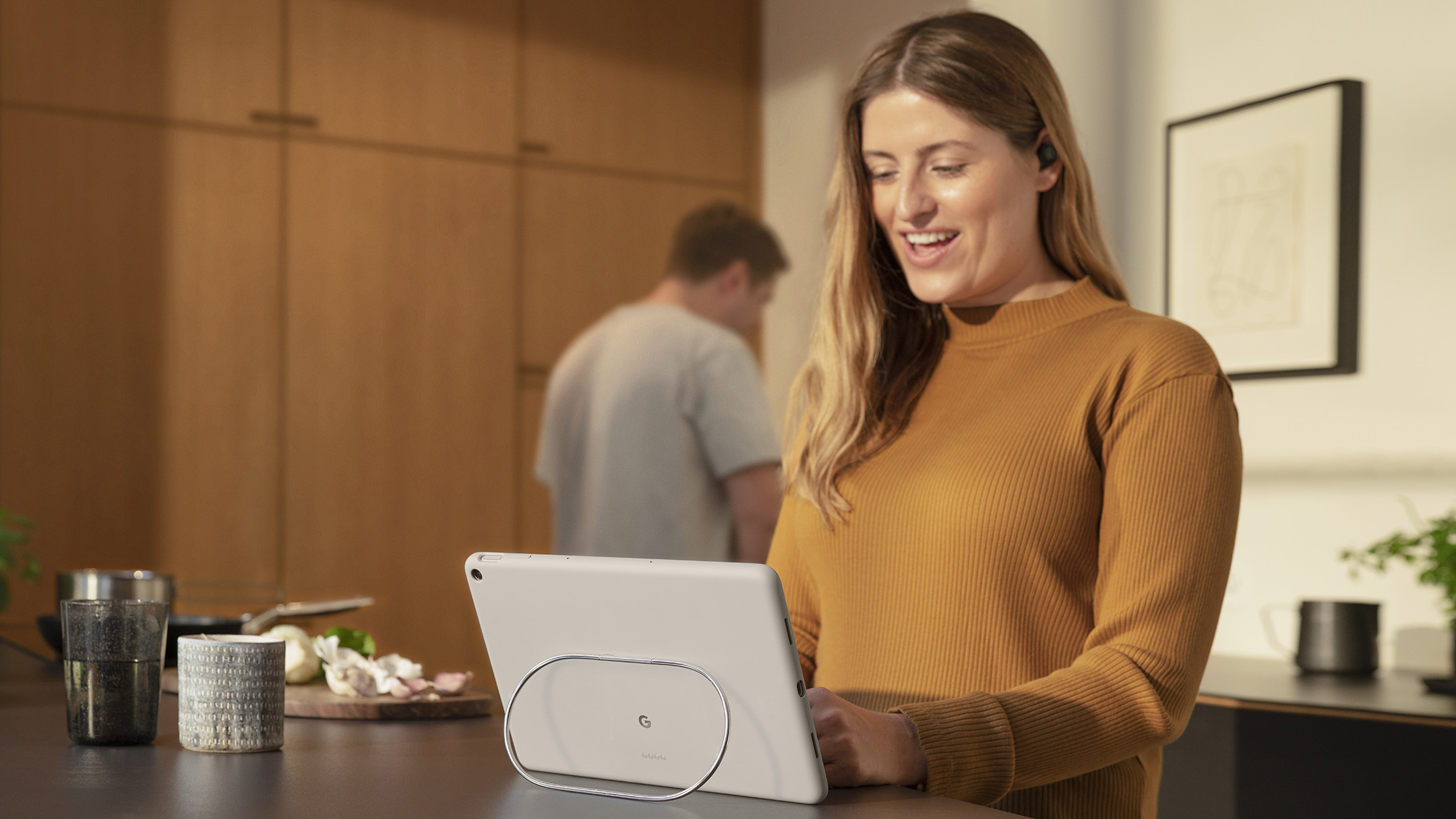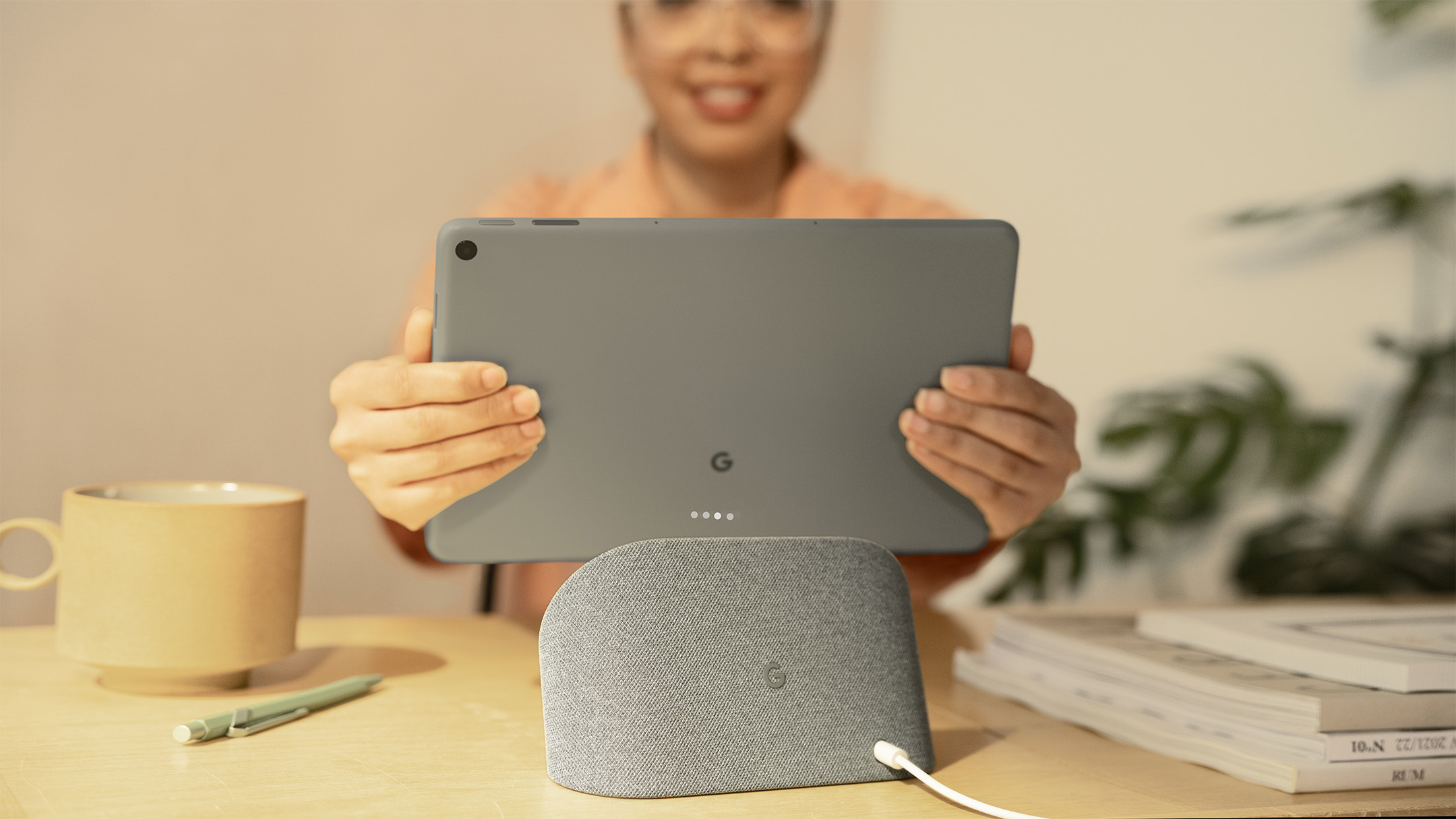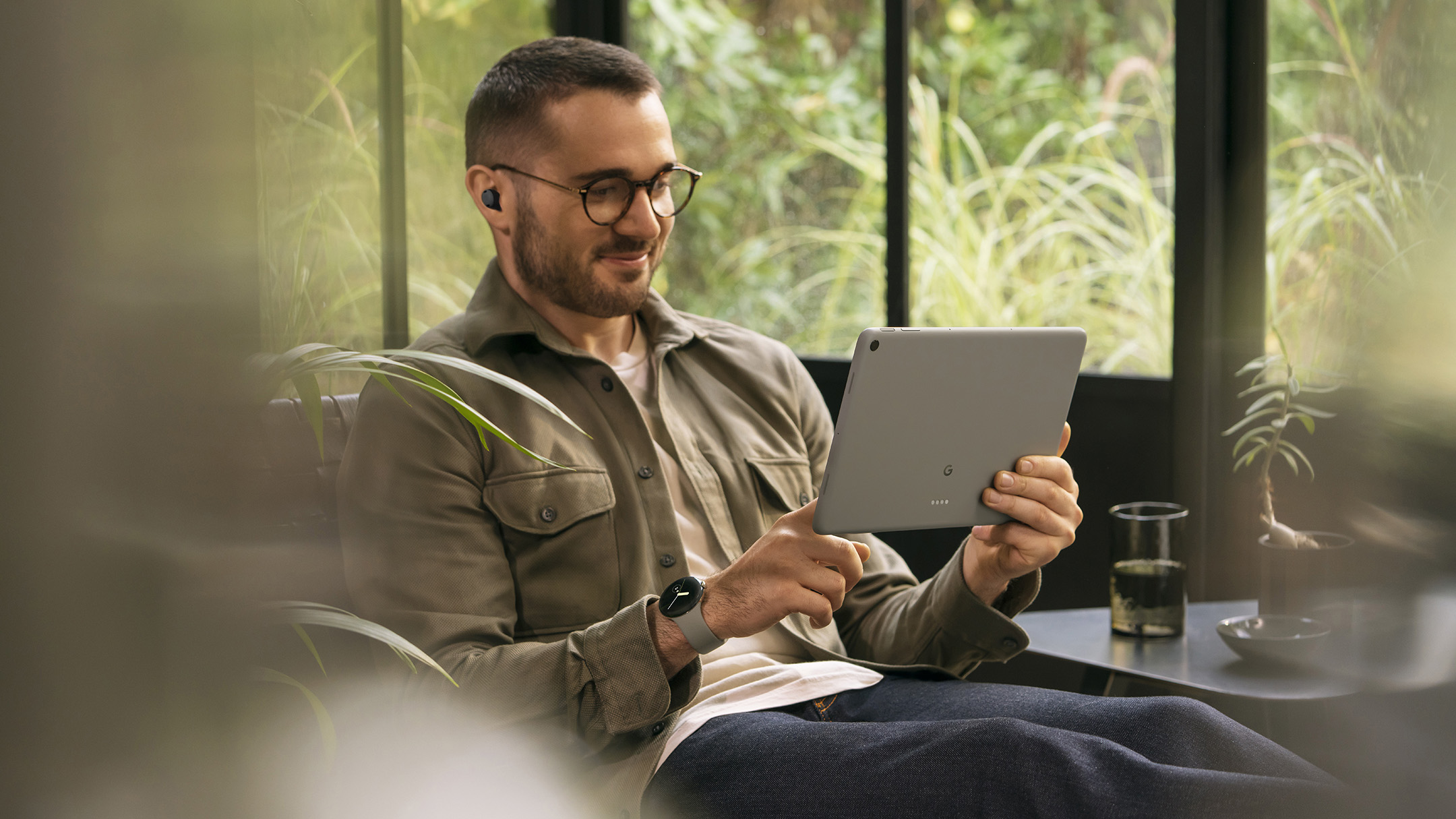
It's finally official, as revealed at Google I/O 2023: the Google Pixel Tablet will be available to buy from 20 June. But does Google's latest tablet have a bit of an identity crisis?
Well, the Pixel Tablet comes with a charging speaker dock in the box, wanting to act as the hub of your home, so I'm not sure if this Pixel wants to be the best tablet or more of a fancy Google Nest Hub replacement.
Either way, the Google Pixel Tablet has been a long time coming. I remember Google's first tablet, the Nexus 7 (which was actually made by Asus rather than Google), which I bought when away on a trip to San Francisco all the way back in 2012. Yep, a full 11 years ago.
Other Google slates have appeared since, of course, but the most recent, the aptly named Google Pixel Slate, was launched in 2018 – so there's been a big and noticeable absence of Google in the tablet space for half a decade. Which, let's face it, is odd for Google, y'know, the maker of the Android platform on which such tablets run.
How much is the Google Pixel Tablet?

Anyway, back to the all-new slate in question, the Google Pixel Tablet. I was excited to first hear about this product, and Google does have a point, derived from research that it has conducted: simply put, people don't really use tablets all that often; they're often left sitting around collecting dust and depleting battery life.
So why not make a product that can and indeed is designed to sit around? Albeit on an included charging speaker dock. That ticks the charging need. It ticks the sound quality need. And, well, it makes the Pixel Tablet into a detachable and fancier Google Nest Hub, really, doesn't it? I'm not totally sure how I feel about that – especially for a tablet that's £599/$599/AUD$899. It sure ain't cheap.
Physically the Pixel Tablet sure looks different to Google's latest Pixel phones, such as the just-announced Google Pixel 7a, but I wasn't expecting a giant 'bar' design with cameras around the back of this 11-inch slate. It does have the same Tensor G2 sensor and fingerprint scanner as the company's best Android phones though.
Get all the latest news, reviews, deals and buying guides on gorgeous tech, home and active products from the T3 experts
Should I buy the Google Pixel Tablet?

Really this tablet, built around an aluminium enclosure and with a nano-ceramic coating on its rear (to look like porcelain but be tougher), is designed to be more roughly handled. That's what I think that coating is all about, whether you pick Porcelain or Hazel finishes.
Interestingly, though, Google doesn't offer its own keyboards and productive peripherals, so really doesn't see the Pixel Tablet as an iPad competitor. Not that you can't use third-party peripherals such as a Bluetooth keyboard with the slate. It's just really not the pitch of this product though, for better or worse.
When docked the Pixel Tablet enters its 'Hub Mode' for a new home control experience, which is why I see it as an expensive and portable Google Nest Hub alternative really. But the slate can do more too: act as a digital photo frame; cast Google TV, and with Chromecast built-in hand-off to other devices such as your phone; and act as a hands-free Google Assistant hub.
I'm on the fence on this one: the Google Pixel Tablet is likely a powerful and awesome tablet; but with a price this high and such a focus on the home, is its identity too off the mark to make sense for purist tablet users? We'll find out later in the year when the tablet goes on sale from 20th June. But, that said, Samsung's premium Galaxy Tab S8 models are all pricier than Google's take, so the Android-maker might be onto a winner.

Mike is T3's Tech Editor. He's been writing about consumer technology for 15 years and his beat covers phones – of which he's seen hundreds of handsets over the years – laptops, gaming, TV & audio, and more. There's little consumer tech he's not had a hand at trying, and with extensive commissioning and editing experience, he knows the industry inside out. As the former Reviews Editor at Pocket-lint for 10 years where he furthered his knowledge and expertise, whilst writing about literally thousands of products, he's also provided work for publications such as Wired, The Guardian, Metro, and more.
